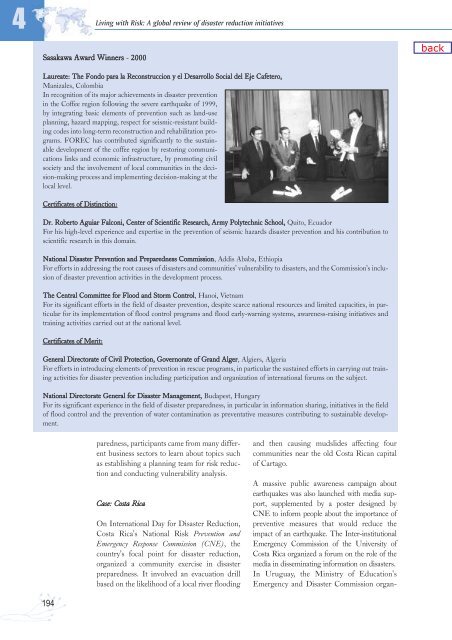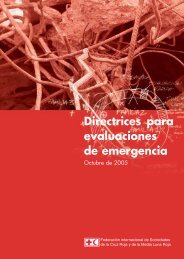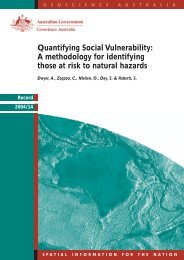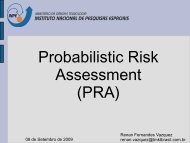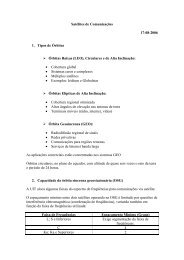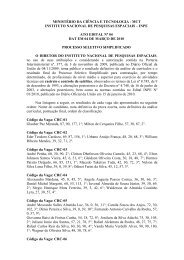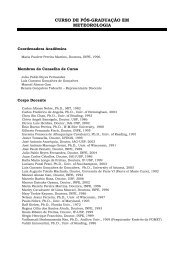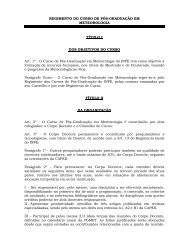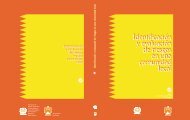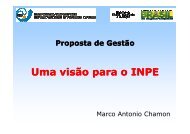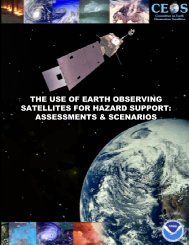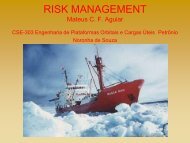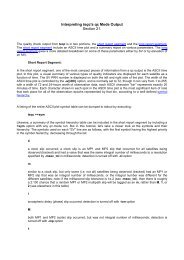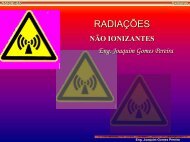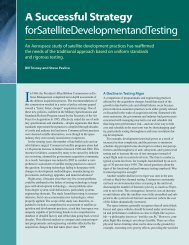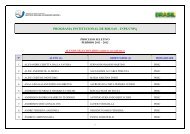Living with Risk. A global review of disaster reduction initiatives
Living with Risk. A global review of disaster reduction initiatives
Living with Risk. A global review of disaster reduction initiatives
You also want an ePaper? Increase the reach of your titles
YUMPU automatically turns print PDFs into web optimized ePapers that Google loves.
4<br />
<strong>Living</strong> <strong>with</strong> <strong>Risk</strong>: A <strong>global</strong> <strong>review</strong> <strong>of</strong> <strong>disaster</strong> <strong>reduction</strong> <strong>initiatives</strong><br />
Sasakawa Award Winners - 2000<br />
Laureate: The Fondo para la Reconstruccion y el Desarrollo Social del Eje Cafetero,<br />
Manizales, Colombia<br />
In recognition <strong>of</strong> its major achievements in <strong>disaster</strong> prevention<br />
in the C<strong>of</strong>fee region following the severe earthquake <strong>of</strong> 1999,<br />
by integrating basic elements <strong>of</strong> prevention such as land-use<br />
planning, hazard mapping, respect for seismic-resistant building<br />
codes into long-term reconstruction and rehabilitation programs.<br />
FOREC has contributed significantly to the sustainable<br />
development <strong>of</strong> the c<strong>of</strong>fee region by restoring communications<br />
links and economic infrastructure, by promoting civil<br />
society and the involvement <strong>of</strong> local communities in the decision-making<br />
process and implementing decision-making at the<br />
local level.<br />
Certificates <strong>of</strong> Distinction:<br />
Dr. Roberto Aguiar Falconi, Center <strong>of</strong> Scientific Research, Army Polytechnic School, Quito, Ecuador<br />
For his high-level experience and expertise in the prevention <strong>of</strong> seismic hazards <strong>disaster</strong> prevention and his contribution to<br />
scientific research in this domain.<br />
National Disaster Prevention and Preparedness Commission, Addis Ababa, Ethiopia<br />
For efforts in addressing the root causes <strong>of</strong> <strong>disaster</strong>s and communities' vulnerability to <strong>disaster</strong>s, and the Commission's inclusion<br />
<strong>of</strong> <strong>disaster</strong> prevention activities in the development process.<br />
The Central Committee for Flood and Storm Control, Hanoi, Vietnam<br />
For its significant efforts in the field <strong>of</strong> <strong>disaster</strong> prevention, despite scarce national resources and limited capacities, in particular<br />
for its implementation <strong>of</strong> flood control programs and flood early-warning systems, awareness-raising <strong>initiatives</strong> and<br />
training activities carried out at the national level.<br />
Certificates <strong>of</strong> Merit:<br />
General Directorate <strong>of</strong> Civil Protection, Governorate <strong>of</strong> Grand Alger, Algiers, Algeria<br />
For efforts in introducing elements <strong>of</strong> prevention in rescue programs, in particular the sustained efforts in carrying out training<br />
activities for <strong>disaster</strong> prevention including participation and organization <strong>of</strong> international forums on the subject.<br />
National Directorate General for Disaster Management, Budapest, Hungary<br />
For its significant experience in the field <strong>of</strong> <strong>disaster</strong> preparedness, in particular in information sharing, <strong>initiatives</strong> in the field<br />
<strong>of</strong> flood control and the prevention <strong>of</strong> water contamination as preventative measures contributing to sustainable development.<br />
paredness, participants came from many different<br />
business sectors to learn about topics such<br />
as establishing a planning team for risk <strong>reduction</strong><br />
and conducting vulnerability analysis.<br />
Case: Costa Rica<br />
On International Day for Disaster Reduction,<br />
Costa Rica's National <strong>Risk</strong> Prevention and<br />
Emergency Response Commission (CNE), the<br />
country's focal point for <strong>disaster</strong> <strong>reduction</strong>,<br />
organized a community exercise in <strong>disaster</strong><br />
preparedness. It involved an evacuation drill<br />
based on the likelihood <strong>of</strong> a local river flooding<br />
and then causing mudslides affecting four<br />
communities near the old Costa Rican capital<br />
<strong>of</strong> Cartago.<br />
A massive public awareness campaign about<br />
earthquakes was also launched <strong>with</strong> media support,<br />
supplemented by a poster designed by<br />
CNE to inform people about the importance <strong>of</strong><br />
preventive measures that would reduce the<br />
impact <strong>of</strong> an earthquake. The Inter-institutional<br />
Emergency Commission <strong>of</strong> the University <strong>of</strong><br />
Costa Rica organized a forum on the role <strong>of</strong> the<br />
media in disseminating information on <strong>disaster</strong>s.<br />
In Uruguay, the Ministry <strong>of</strong> Education's<br />
Emergency and Disaster Commission organ-<br />
194


